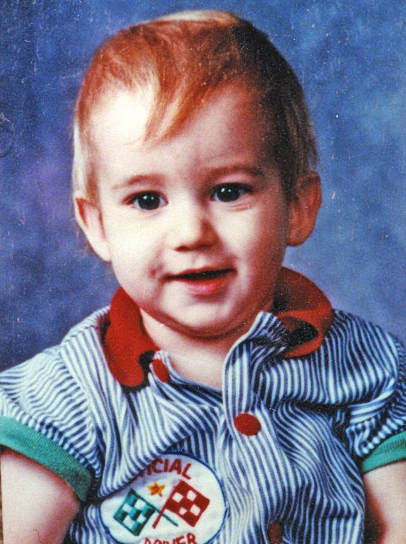[ad_1]
— OPINION —
Today, September 18, would be my son, Riley Detwiler’s 32nd birthday.
Earlier this year, I had the privilege and heartache of being part of the recently released Netflix documentary, “Poisoned: The Dirty Truth About Your Food.” In addition to offering insights from my food safety career over the past 30 years, I recounted the harrowing experience of losing my 17-month-old son Riley to the landmark 1993 E.coli outbreak linked to fast food hamburgers. While Riley’s story has long been held as a poignant reminder of the devastating impact of foodborne illness, his chair will sit forever empty at our family table.
Participating in the documentary was more than a personal journey for me; it was an opportunity to lend my voice to a chorus of families who have endured the pain and suffering caused by failures in food safety. Through sharing my family’s story, I felt a profound sense of duty and responsibility to honor the experiences of others impacted by failures in food safety. I wanted to ensure that these families, who forever live with an empty chair at their tables, are not relegated to the shadows of anonymity.
The documentary not only memorializes Riley’s story, but it also shines a light on a broader truth — the reality that foodborne pathogens claim the lives of around 3,000 Americans each year. This staggering toll remains largely invisible, shrouded in the silence of those who have suffered. I have seen “Poisoned” three times and each viewing has left me feeling overwhelmed by emotion as the documentary bridges the gap between individual tragedy and collective awareness. At the viewing in New York during the documentary’s premiere with a live audience at the TriBeCa Film Festival, I couldn’t help but draw parallels between the 9/11 Memorial and the narrative unfolding on the screen
At the 9/11 Memorial in New York City, I was struck by the power of remembrance — a tangible tribute to the lives lost and the collective grief borne by a nation. The names etched into those solemn panels serve as an enduring testament to the tragedy that unfolded on that fateful day. Yet, as I gazed at the memorial, a poignant thought emerged: where is our national memorial for the thousands of lives claimed annually by foodborne pathogens?
While the 9/11 Memorial stands as a symbol of remembrance, “Poisoned” represents something more — a call to action, a movement for change, and a tribute to resilience. This film is a powerful reminder that our fight for improved food safety is not just about individual lives, but a collective commitment to preventable suffering.
One of my deepest hopes is that “Poisoned” will serve as an inspiration for others to share their food safety stories. In terms of victims, I once read that “One of the most valuable things we can do to heal one another is listen to each other’s stories.” I can tell you from 30 years of being in my situation that this is 100% true. I am also eager to hear more accounts of food safety leaders, executives, and policymakers about their own experiences and inspirations. Every story has the potential to drive transformation, to influence policies, and to cultivate the courage required to safeguard the food we consume.
Food safety is not an abstract concept; it is a matter of life and death, of family unity, and community well-being. While my journey through grief has been arduous, it has also forged in me a determination to call out the Herculean effort behind food safety and to inspire change, — a fire to ensure that others do not suffer the same fate. As such, I believe that this documentary’s release is a catalyst, a pivotal moment in the trajectory of our collective fight for safer food systems.
To all those who have endured the heartache of losing a loved one to foodborne illness, I stand with you. “Poisoned” is not just a story; it is a pledge. A pledge to ensure that the empty chairs at our tables become fewer and farther between. A pledge to hold the food industry accountable and demand transparency. A pledge to honor the memory of those we have lost through meaningful change.
As the credits rolled at the premiere, I was filled with a sense of both sorrow and hope: the sorrow for the lives we have lost and the pain endured, and the hope that this film will resonate far and wide, propelling us all toward a future where foodborne illness is a distant memory. Let “Poisoned” be a clarion call for courage and for the unwavering commitment to a safer food landscape. Let it be the catalyst that turns individual stories into a resounding narrative of change, and, until we have some kind of monument beyond those found in far too many families’ homes, let it serve as a memorial that our loved ones deserve.
I urge everyone to watch “Poisoned: The Dirty Truth About Your Food” and share in this journey of remembrance, transformation, and hope. Let us create a world where fewer and fewer chairs remain forever empty due to failures in food safety.

About the author: Darin Detwiler is an author, consultant, speaker, and is regarded as a “Food Safety Icon.” He is an Associate Professor at Northeastern University. Over the past 30 years, he has served in appointed advisories for the USDA, represented NGOs, served on CFP councils, and supported the FDA’s implementation of FSMA. He is the Chair of NEHA’s Food Safety Program. His books – Food Safety: Past, Present, and Predictions and Building the Future of Food Safety Technology – are used in multiple universities. Detwiler is the recipient of the IAFP’s 2022 Ewen C.D. Todd Control of Foodborne Illness Award as well as their 2018 Distinguished Service Award for dedicated and exceptional contributions to the reduction of risks of foodborne illness.
[ad_2]
